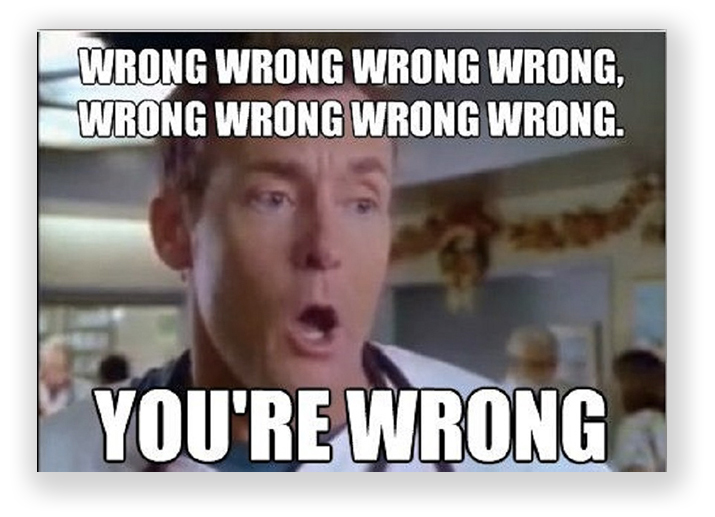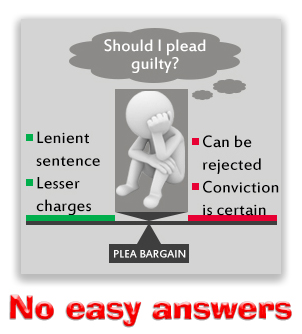We post news and comment on federal criminal justice issues, focused primarily on trial and post-conviction matters, legislative initiatives, and sentencing issues.

WHEN LAWYERS AREN’T JUST WRONG, BUT VERY, VERY WRONG
It’s long been held that a lawyer’s duty during plea negotiations is to advise a defendant on the strength of the government’s case and the difference between the sentence you’d get at trial and the one you’ll get taking the plea. But what if your lawyer blows it?
 Many a prisoner has complained in a § 2255 motion that his or her lawyer badly misestimated the sentence, and if counsel had gotten it right (or close to right), the defendant would have accepted the deal. And many of those prisoners have lost their 2255s because the court holds that their lawyers’ bad guesses are not the same as ineffective assistance.
Many a prisoner has complained in a § 2255 motion that his or her lawyer badly misestimated the sentence, and if counsel had gotten it right (or close to right), the defendant would have accepted the deal. And many of those prisoners have lost their 2255s because the court holds that their lawyers’ bad guesses are not the same as ineffective assistance.
But sometimes, the miss is just too wide.
Steven Baker had committed a series of armed bank robberies. When he faced trial in 2010, Steve’s attorney advised him that he faced a total of 15-17 years’ imprisonment if he accepted a government offer to plead to one robbery and one 18 USC § 924(c) gun charge, but if he didn’t take the deal, the government would charge him with two other armed robberies. Counsel said the three potential § 924(c) counts would give him 21 years consecutive to his bank robbery Guidelines.
Wrong, wrong, wrong. This was all before the First Step Act passed in 2018, so Steve faced a consecutive 57-year mandatory minimum sentence under the § 924(c) “stacking” provision then in effect. Based on the difference between 17 years with a plea and 21 years rolling the dice at trial, Steve turned down the plea. He was charged with the other robberies and went to trial, where he, of course, was convicted on all counts. He got 57 years on the § 924(c) counts plus 87 months more on the bank robbery charges.
Steve filed a § 2255 motion claiming his lawyer was ineffective in advising him so badly about 21 years versus 57 years. The district court turned him down, but last week, the 3rd Circuit vacated his conviction.
 “When addressing a guilty plea, counsel is required to give a defendant enough information to make a reasonably informed decision whether to accept a plea offer,” the Circuit held. “We have little difficulty concluding that this more than three-decade miscalculation of Baker’s sentence exposure on the three potential § 924(c) counts is objectively unreasonable.”
“When addressing a guilty plea, counsel is required to give a defendant enough information to make a reasonably informed decision whether to accept a plea offer,” the Circuit held. “We have little difficulty concluding that this more than three-decade miscalculation of Baker’s sentence exposure on the three potential § 924(c) counts is objectively unreasonable.”
The bigger issue was whether Steve had proven he was prejudiced, that is, that he would have taken the 17-year plea deal if his lawyer had accurately explained the likely 57-year stacked sentence if he went to trial. The trial court found Steve’s testimony that he would have taken the deal to lack credibility, but the 3rd Circuit said the very fact that the difference between the 21 years estimated by counsel and the 57 years plus he got was all the evidence it needed.
Considering the sentence-exposure disparities as evidence of prejudice “makes good sense,” the 3rd ruled.
A great disparity provides sufficient objective evidence—when combined with a defendant’s statement concerning his intentions—to support a finding of prejudice… Moreover, while a defendant’s calculus in accepting or rejecting a plea offer may involve many variables, knowledge of the comparative sentence exposure between standing trial and accepting a plea offer will often be crucial. Large sentence-exposure disparities weigh directly on this “crucial” decision.
 Steve’s actual sentencing range was “extraordinarily greater than the 15-17 years he would have received had he accepted the plea offer,” the Circuit said. “As Baker states, the 57-year mandatory minimum alone would almost certainly mean that he would ‘die in prison.’ This great sentence-exposure disparity, the true scope of which Baker did not know due to his counsel’s underestimate of the sentence for the potential firearm charges, weighs heavily in favor of prejudice.”
Steve’s actual sentencing range was “extraordinarily greater than the 15-17 years he would have received had he accepted the plea offer,” the Circuit said. “As Baker states, the 57-year mandatory minimum alone would almost certainly mean that he would ‘die in prison.’ This great sentence-exposure disparity, the true scope of which Baker did not know due to his counsel’s underestimate of the sentence for the potential firearm charges, weighs heavily in favor of prejudice.”
Baker v. United States, Case No. 23-2059, 2024 U.S. App. LEXIS 18333 (3d Cir., July 25, 2024)
– Thomas L. Root

